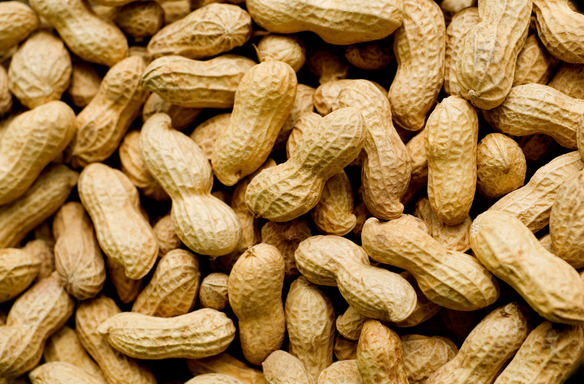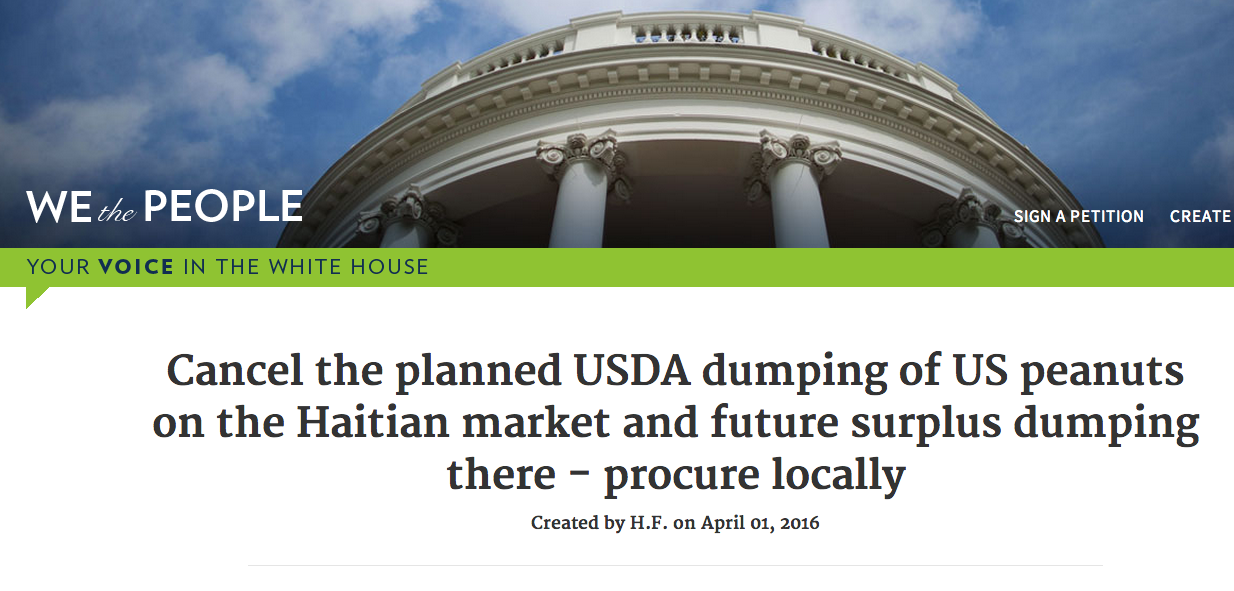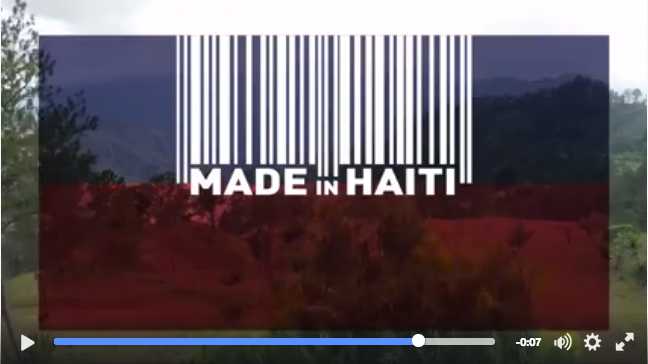If you follow the news, or run in circles where Haiti is at the forefront of people’s minds, you’ve likely already heard that the United States has a significant peanut surplus; and we’re trying to send 500 tons of it to Haiti. (That’s something like 160 million peanuts.)
While sending these peanuts to Haiti is supposed to help feed 140,000 malnourished children – it’s still a bad idea.
Dumping that amount of free food into the Haitian peanut market (which normally serves as a supply for all of that tasty manba being made in the country) would undercut Haitian farmers, and it’s a blow they might not recover from.
Nevertheless, powerful institutions like the USDA, continue to tote this kind of “aid” as a “humanitarian effort.” On their blog page, the USDA states that:
“The Farm Service Agency joins the Foreign Agricultural Service in prideful use of the nation’s commodities to help nations in need … [and that] the multi-agency, USDA effort is especially rewarding when all of the puzzle pieces fit and a commodity is used wisely to meet nutrition requirements of people throughout the world.”
But we already know that this kind of surplus dumping is damaging. In fact, it is, unequivocally, unwise. We know this because we’ve been here before.
Former U.S. President Bill Clinton is infamous for the role he played in the destruction of Haiti’s rice industry in the 1990’s. With the benefit of hindsight, he’s explained what went so very wrong then – and it’s a lesson we all stand to learn from now:
“It may have been good for some of my farmers in Arkansas, but it has not worked. It was a mistake…. I have to live every day with the consequences of the lost capacity to produce a rice crop in Haiti to feed those people, because of what I did.”
While it is tragic that it has taken us this long to understand the impact this kind of action has on a market like Haiti’s, food aid is beginning to change. Organizations like the Clinton Global Initiative and Feed the Future are looking into supporting Haitian farmers instead of undercutting their efforts with handouts.
Needless to say, this peanut dump would be a huge setback. This kind of aid creates dependency – and furthers the narrative that paints Haiti as dependent on U.S. goods and services. Haiti doesn’t need our peanuts, and by trying to force them on them we’ll be doing more harm than good. A petition has been started to put pressure on the government to cancel the planned USDA peanut dumping in Haiti, we’ve decided to make it available below for any readers who care to sign, just click on the hyper link or on the image below. To learn more about the effects this influx of U.S. agricultural product would have on Haiti, we recommend this piece by Marc Cohen, who volunteers for OXFAM and regularly contributes to their blog: The Politics of Poverty.
In order for the petition to reach the White House it needs 100,000 signatures. Your voice could help.
Finally, we posted this video a few weeks ago, but it seems timely to share it here again. (Click on the image below to be taken to the video.)
When we asked you what some of your favorite “Made in Haiti” products are, an overwhelming number of you responded “Manba!” Let’s work to keep it that way.
Written by Erin Nguyen on April 21, 2016



